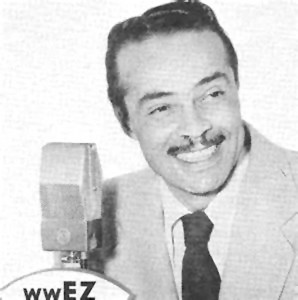

The life of artist, Dillard University teacher and DJ Vernon “Dr.
Daddy-O” Winslow reads like a tragicomic screenplay. Winslow is considered to have
racially integrated radio in New Orleans, Louisiana between 1948 and 1950, and later
introduced Black culture to broadcast audiences as the first Black DJ in the
city—though not without a difficult struggle, working his way past the palace guards.
Determined to break into a business that didn’t (yet) want him, Winslow mailed
scripts he’d written to local radio station WJMR. Unable to ignore the high quality
of Winslow’s writing, the station hired him—but then wouldn’t let him on
air.
Black folks had made enough progress by then that Black culture was starting to catch on
with white audiences, especially the music. Radio stations suddenly wanted Blackness, but
not actual Black radio celebrities. And so, like some long-lost Richard Pryor movie, the
station’s owner made Winslow teach white disc jockey Duke Thiele to fake an
African-American accent and dialect on air—not unlike modern-day conservative radio
hosts Walton and Johnson. Daddy-O
christened this very popular racial Frankenstein he’d created, “Poppa
Stoppa.”
“I wrote the monologue, the jive about music,” Winslow recalled to United Press
International In 1987, at the age of 76. “Other stations were too dignified to play
rhythm and blues.”
Despite how distasteful this all may sound, Winslow seemed to realize the end game would
make it worth it: more Blackness on the air, one way or another. And with the wheels
greased and New Orleans wanting more, Winslow eventually found his way onto the air: in
1950, a Jackson beer brewery hired Winslow in the public relations department of
Fitzgerald Advertising Agency on the radio station WWEZ, where he invented his persona,
Dr. Daddy-O, who would go on to set the standard for Black radio DJs to follow.